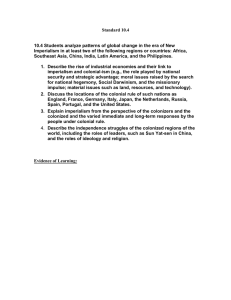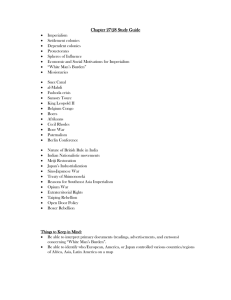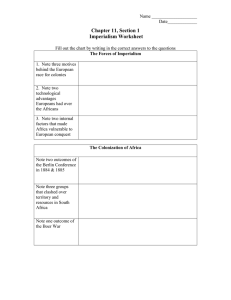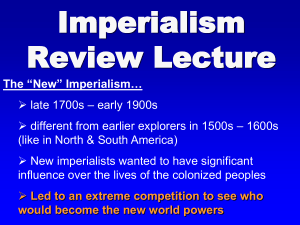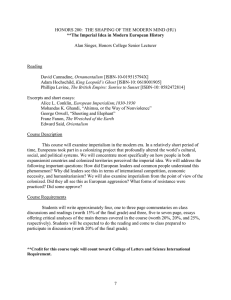SOL NOTES/ UNIT STUDY GUIDE Imperialism STANDARD WHII.8
advertisement
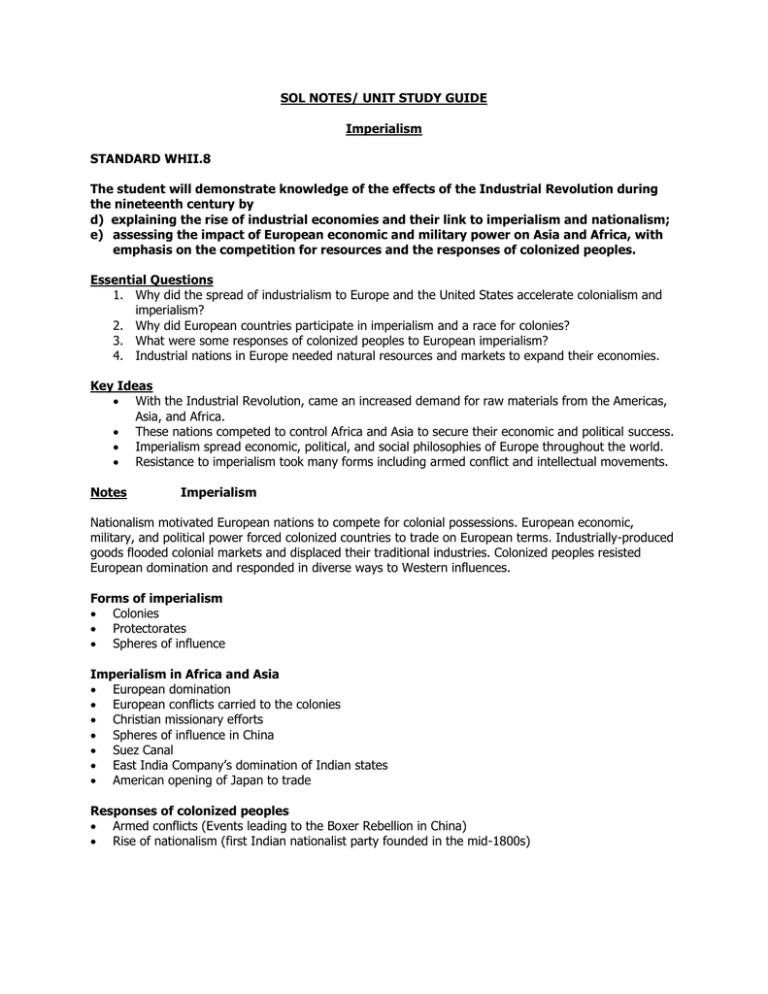
SOL NOTES/ UNIT STUDY GUIDE Imperialism STANDARD WHII.8 The student will demonstrate knowledge of the effects of the Industrial Revolution during the nineteenth century by d) explaining the rise of industrial economies and their link to imperialism and nationalism; e) assessing the impact of European economic and military power on Asia and Africa, with emphasis on the competition for resources and the responses of colonized peoples. Essential Questions 1. Why did the spread of industrialism to Europe and the United States accelerate colonialism and imperialism? 2. Why did European countries participate in imperialism and a race for colonies? 3. What were some responses of colonized peoples to European imperialism? 4. Industrial nations in Europe needed natural resources and markets to expand their economies. Key Ideas With the Industrial Revolution, came an increased demand for raw materials from the Americas, Asia, and Africa. These nations competed to control Africa and Asia to secure their economic and political success. Imperialism spread economic, political, and social philosophies of Europe throughout the world. Resistance to imperialism took many forms including armed conflict and intellectual movements. Notes Imperialism Nationalism motivated European nations to compete for colonial possessions. European economic, military, and political power forced colonized countries to trade on European terms. Industrially-produced goods flooded colonial markets and displaced their traditional industries. Colonized peoples resisted European domination and responded in diverse ways to Western influences. Forms of imperialism Colonies Protectorates Spheres of influence Imperialism in Africa and Asia European domination European conflicts carried to the colonies Christian missionary efforts Spheres of influence in China Suez Canal East India Company’s domination of Indian states American opening of Japan to trade Responses of colonized peoples Armed conflicts (Events leading to the Boxer Rebellion in China) Rise of nationalism (first Indian nationalist party founded in the mid-1800s)
